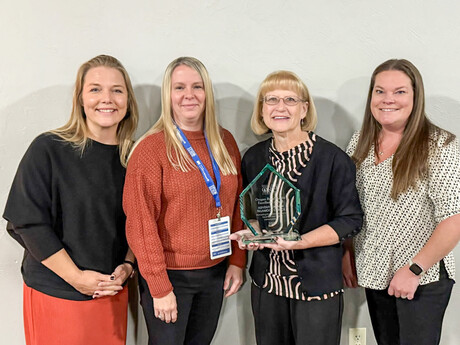Like so many mothers, Linda's life was busy, working and taking care of her husband and three children. Then last spring, when the 47-year-old mother went to her doctor, he admitted her to Adventist Medical Center in Portland, Ore., with shortness of breath and a cough. Her initial diagnosis was pneumonia, but unfortunately, additional tests revealed Linda had stage IV lung cancer.
Her physician realized that chemo and radiation were not going to give her positive outcomes, and so he contacted the hospital’s newly formed Palliative Care Team. The primary goal of the team is to connect with patients and families early and to assist with needs throughout the course of an illness.
When the team met Linda, her first and most pressing question was, “How do I tell my kids?” During her first week of hospitalization, the Palliative Care Team provided enormous emotional support as she dealt with a range of emotions. The team worked with Linda, her husband and her parents to provide information about how to talk to the kids.
Linda went home in November with an appointment to see an oncologist for treatment. She knew that it would be for palliative—not curative—care. Her goal was to live as long as possible for her kids.
Later that month, Linda was again admitted to the hospital with chest pain and shortness of breath. Despite chemotherapy, her disease had progressed. While in the hospital, the physicians gave her a grim prognosis and contacted the Palliative Care Team.
Linda’s biggest concern again was her children. She and her husband had told the children about the cancer but hadn’t revealed how serious the condition was. The team again worked with Linda and her family about how to talk to the kids.
Near Thanksgiving, Linda went home, but her condition was declining rapidly. With Linda’s death expected in hours to days, the family asked the team to help them tell the children what was to come.
The team prepared an empty patient room and gathered the family and their pastor. When the children heard the news, the 10-year-old began to scream, the 14-year-old started to cry, and the 18-year-old stood quietly. Eventually, they calmed down and asked questions. The Palliative Care Team and the adult family members answered questions and reassured them their feelings were OK.
The family spent the afternoon and evening close to Linda, continuing to lean on the team for strength. Linda died quietly and peacefully with beauty, tenderness and dignity.
Box:
What is palliative care?
Palliative care is an interdisciplinary team approach to care aimed at relief of suffering, preservation of dignity and support for the best quality of life for anyone dealing with a serious illness, at any time, regardless of diagnosis, prognosis or treatment. Care is focused on the whole person, offering assistance with physical, spiritual, emotional and cultural needs in conjunction with all other appropriate care.
How do I find out more?
For more information about palliative care at AMC, call (503) 257-2500 or visit











